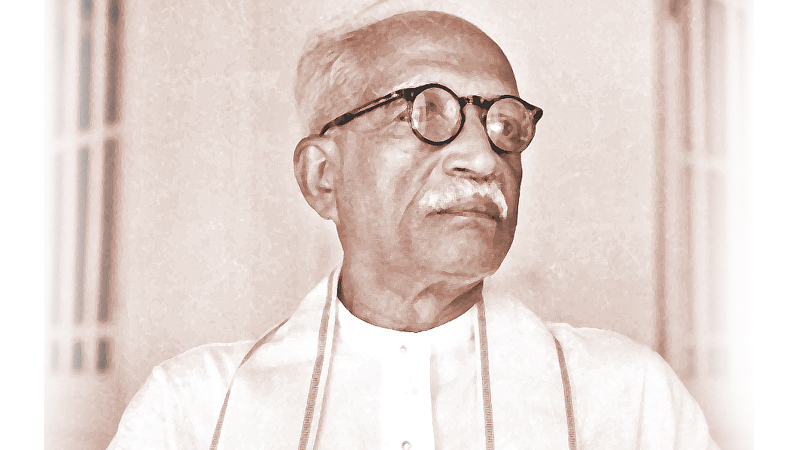By Udari Abeyasinghe
The phrase Mind the Gap was originally used at railway stations to warn rail passengers to watch out for the space between the train door and the station platform. This warning is meant to make passengers pay attention to the gap and take precautions to avoid falling into it. In this article, I ask readers to mind the gap between policy and reality, specifically the gap between SGBV policies and the reality at our universities.
Policy facade
Developing and implementing policies and procedures are part of quality assurance processes within universities. More often than not, “newer” policies tend to sit on a website, or on paper, serving as evidence to show that the university is handling a nagging problem. As Sara Ahmed says in her book Complaint!, “Creating evidence of doing something is not the same as doing something.” SGBV policies of the UGC and the universities are a good example of policies that look good on paper.
The scope of SGBV policies at universities purportedly encompass promoting and maintaining a culture in which the dignity and equality of all persons are respected. But there is a yawning gap between the way in which a university projects itself, that of being committed to preventing harassment/violence, and the decisions and measures taken to actually further its purported goal.
Double standards
Take for example, the “hostel rule” at one university that restricts female students’ movement by imposing “late” and “early passes.” According to hostel rules, a female student must return to the hostel no later than 7.30 pm. If a student wishes to return after, she must request a late pass which will allow her to enter the hostel after 7.30 pm, but not later than 10 pm. Similarly, female hostelers at this university are permitted to leave the hostel at 6 am, but must obtain an early pass to leave between 4.45 am and 6 am. However, no such rules are in place at men’s hostels; male students are permitted to enter and leave hostels as they wish.
I have had conversations with students about how they feel about this practice, which essentially reinforces archaic gender norms that have no relevance to the present. Female students often express that it is an unnecessary burden on them because they must obtain late passes even when they attend university events or field trips. Although both male and female students are aware that the practice is “unfair,” this policy has been in place for many decades and normalised. As such, its discriminatory nature is overlooked by student unions and academics alike, despite the existence of policies on SGBV and gender equality.
Flawed logic
The rule itself is viewed to protect women students, presumably from sexual predators. So, one might argue that this rule is imposed in good faith. However, in an era when women make up the majority of university students, and are at the cusp of joining the workforce, including for jobs that require night travel, this rule is ridiculous. It contradicts the university’s pledge to offer undergraduates a stimulating and “innovative” learning environment, where student centered learning is supposedly promoted.
University rules should not discriminate based on gender. When I resided in a hostel as a temporary lecturer, there were instances when I had unplanned meetups with friends after work. Not being able to make a prior request for a late pass, I relied on my roommate to make a request on my behalf, a senseless hassle for both of us. Especially now, with the economic crisis when some students are compelled to do part-time work to be able to afford their daily expenses, why should they be burdened by these passes?
The bigger picture
This “pass” rule exemplifies the numerous formal (and at times “informal”) and largely unnoticed, institutionalised forms of discrimination that prevail within the university system. Seemingly trivial, the pass rule might elicit a response of “So what?” but these kinds of norms lay the foundation for discriminatory practices against women in the university. Suppression of women’s voices happens at multiple levels in the university. Restricting women’s freedom in the manner described above restricts their ability to take part in the university’s social and academic life, stunting their development as full-fledged members of the university. Further, it infantilises them; makes them victims of a system; and punishes them for being women.
Does restricting freedom of movement in the name of protection ensure safety? Absolutely not. The more the restrictions, fewer women will be present in university spaces after 7.30pm, making them less “women-friendly” and, in fact, less safe. If the university wishes to ensure student safety, the administration should create a safe and inclusive environment in which any form of violence is unacceptable. Students should be encouraged to use complaint procedures, including against discriminatory policies implemented by the university, without fear of reprisal. Other measures might include bystander training programmess (a bystander is a person who witnesses a problematic situation and takes steps to speak up or disrupt the situation or prevent it from escalating) or other educational programmes that instill in students a commitment to non-violence. It is also important to strengthen institutional initiatives like SGBV policies, counselling programmes and others. Active participation of women in Student Unions should be encouraged. Formal or informal women’s councils in the university will strengthen the hand of the woman student, who needs a space for free articulation of her needs and desires. Above all, discriminatory practices of the university, seriously erode into the democratic fabric of university society and needs to be challenged by all.



